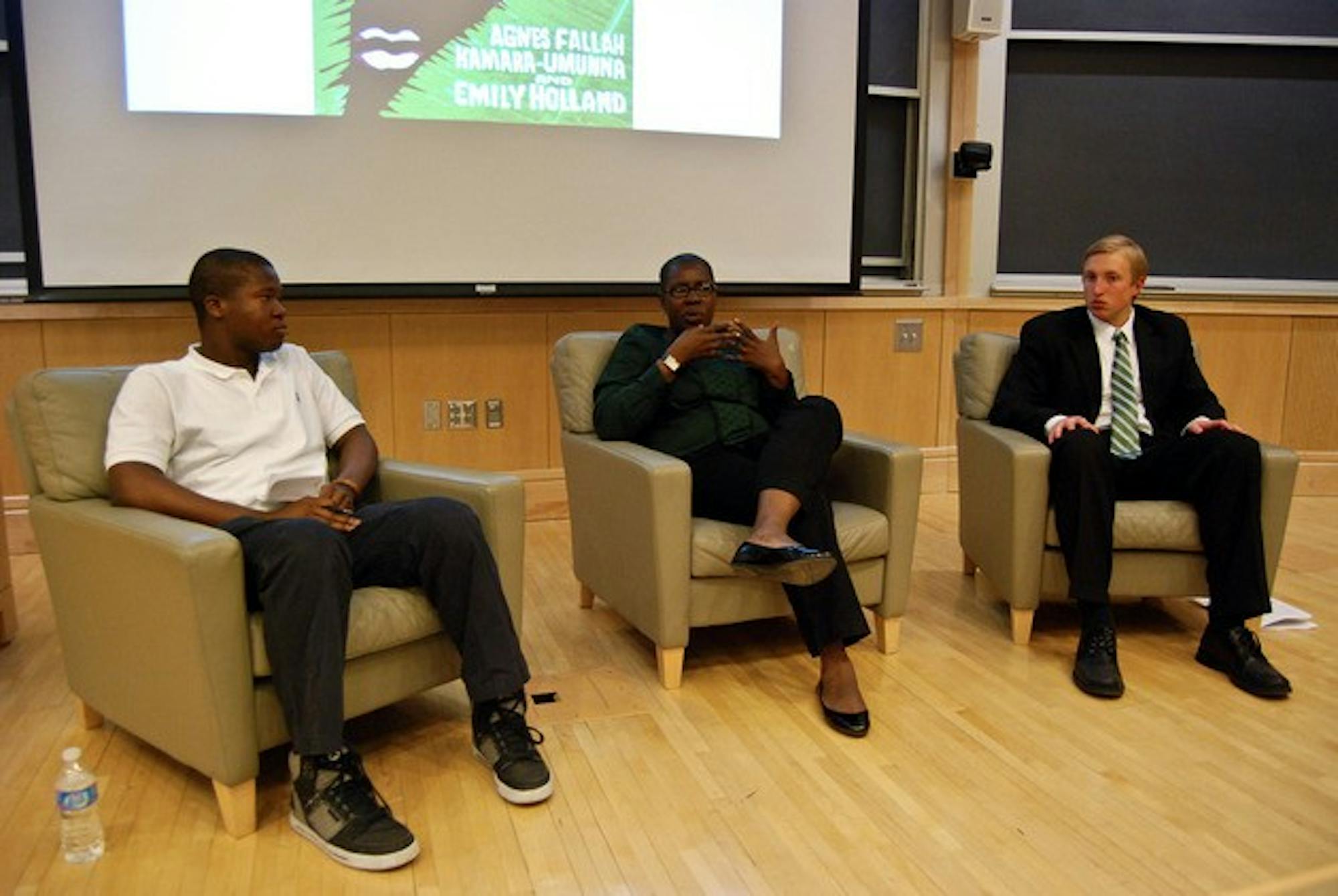Kamara-Umunna spoke candidly to a 50-person, student-dominated audience. She began the talk by asking audience members to close their eyes and imagine living the lives of Liberian children during the civil wars.
She discussed her work as a statement-taker for the Liberia Truth and Reconciliation Commission an organization that sought to find the causes behind and impacts of the Liberian civil war and her recent memoir, "And Still Peace Did Not Come." The book combines her personal accounts as a Liberian living through the war and the stories of child soldiers and victims of the civil war.
The audience watched a short documentary video by The New York Times, which included accounts of rape and dismemberment from war-affected Liberian people, interviews with Kamara-Umunna and descriptions of the statement-collecting work she has done both in Liberia and in the Liberian-populated Park Hill neighborhood of Staten Island.
As a member of the Truth and Reconciliation Commission, Kamara-Umunna took an innovative approach to story collection, interviewing both victims and perpetrators of the widespread violence, she said. Her methods have gained the attention of activists like South African archbishop emeritus Desmond Tutu and other Truth and Reconciliation Commissions, she said.
Liberia experienced two civil wars 1989 through 1996 and 1999 through 2003 which displaced 1 million people and caused 200,000 people to lose their lives, according to Clinton Grable '14, who introduced moderator and co-organizer Mahmud Johnson '13.
The wars were "an unending nightmare of irregular warfare that devastated families and communities all across the country" and forced thousands of children into combat, Grable said.
Kamara-Umunna moved forward in her seat as she expressed her frustration with the Liberian government's inability to implement the recommendations of the Liberia Truth and Reconciliation Commission recommendations that include the banning of many current government officials from political life due to their involvement in the civil war.
"I used to play, you used to play," she said. "I used to be happy. Those children lost all those things. They are suffering ... but those people that brought guns to them are still living lives. They have cars, they have money."
Kamara-Umunna discussed her views on "parallel justice" justice for both the victim and the perpetrator but said the international community does not focus enough attention on the victims.
"As soon as they get the offender, they forget about the victims, which I can't understand," she said.
Survivors who tell Kamara-Umunna their stories are often stigmatized by their communities, and Kamara-Umunna said she regrets not being able to offer victims more help and support while they tried to reintegrate themselves into their communities.
Kamara-Umunna said she recently trained about 50 Liberian youths to use radio equipment so they can collect war stories from their communities in their local language. She founded a radio show, "Straight From the Heart," in 2004 which invited callers to share their civil war stories.
Her next goal is to train local midwives in Liberia, who will hopefully establish community health practices throughout the country, she said.
The Great Issues Scholars Program co-organized the talk with Johnson, who is from Liberia and lived through the 1997-2003 civil war. The event was coincidentally scheduled on the 31st anniversary of the 1980 military coup that plunged Liberia into several decades of political instability and subsequent war, according to Johnson.
"I just felt that it was necessary to share where I come from with other Dartmouth students to know a little about Liberia," Johnson said in an interview with The Dartmouth. "That's the essence of Dartmouth education it adds value to our common experience."
Students stayed after the talk to speak with Kamara-Umunna, who signed books and provided personalized advice to students on how to help women throughout the African continent.
Several audience members commented on the motivational theme of Kamara-Umunna's talk. Afia Obeng '12 said the lecture was a "much needed" event that showed African women on campus that they can make a difference in their own communities.
"I like to see women from the continent doing things to help back," she said. "I think many times we tend to see the male faces or the faces of foreigners that represent our stories, so I like to see women telling our stories telling the stories of other women. We don't get to see that often in the Western media."




